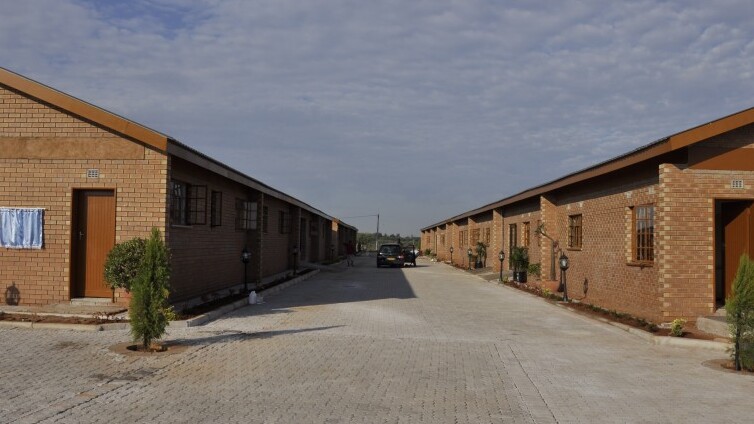
Programme Structure
Programme Structure

1. Programme Overview |
|---|
Cybersecurity has become a critical concern for businesses and governments globally, and Botswana is no exception. The Botswana Cyber Security Report 2018 revealed that cybercrime costs Africa approximately $3.3 billion annually, with Botswana incurring losses of up to P250 million. Sectors such as banking and financial services have become prime targets for cybercriminals. Despite this alarming trend, there is a notable lack of formal training and awareness in anticipating, detecting, responding to, and mitigating evolving cyber threats. As networks and business information systems become integral to operations, it is imperative to protect corporate data, government secrets, financial systems, and military information. A Bachelor of Science (BSc) in Cybersecurity equips graduates with the technical expertise and critical thinking skills required to combat cybercrime, aligning IT security strategies with the rapid advancements in cybercrime technologies. Botswana’s ICT Maitlamo Policy identifies cybersecurity as a priority area for development, emphasizing the need for skilled professionals to address cyber threats effectively. Similarly, the National Development Plan 11 (2017–2023) underscores the importance of addressing cybersecurity risks and implementing legislative frameworks to combat these threats. The National Cyber Security Strategy further highlights the limited capacity in cybersecurity expertise within the country, calling for multi-stakeholder approaches to strengthen national resilience against cybercrime. To remain competitive in the digital era, Botswana requires a robust pipeline of cybersecurity professionals. Recognizing this, ABM University College conducted extensive research involving industry professionals, human resource consultants, and information technology experts to assess the relevance of a BSc in Cybersecurity in the local and regional job market. The findings confirmed a high demand for this qualification in Botswana and the broader SADC region. |
Programme Purposes |
|---|
The BSc in Cybersecurity aims to produce graduates with a comprehensive understanding of cybersecurity concepts, tools, and techniques. The programme equips students with the skills needed to:
Graduates of this programme will be well-prepared to tackle the increasing sophistication of cyber threats, ensuring organizational resilience and contributing to Botswana’s digital transformation agenda. By developing competencies in cybersecurity management and operational security, graduates will address the critical skills gap in the region and drive innovations in protecting cyberspace. This qualification positions graduates for careers in diverse industries, including banking, government, military, and private sectors, where cybersecurity expertise is essential. |
2. Entry Requirements | |
|---|---|
Direct entry scheme | A minimum of 40 points in Botswana General Certificate of Secondary Education (BGCSE)/ International General Certificate of Secondary Education (IGCSE). |
Core Subject:
| Credit in English: (C), Credit in Mathematics: C or better, Additional Maths, Science/Physics is an advantage |
3. Career Paths/Opportunities |
|---|
|
Module Name | Credits |
|---|---|
Communication and Study Skills | 10 |
Introduction To Computer Systems
| 15 |
Introduction to Operation Systems
| 15 |
Critical Reading and Expository Writing
| 10 |
Introduction To Accounting
| 10 |
Entrepreneurship 1
| 5 |
Personal Mastery 1
| 5 |
Introduction To Cyber Security
| 15 |
Introduction To Programming
| 15 |
Introduction To Psychology
| 10 |
Statistics in Computer Science
| 15 |
Governance and Ethics 1
| 5 |
Innovation 1
| 5 |
TOTAL CREDITS | 135 |
Module Name | Credits |
|---|---|
Introduction to Networking | 15 |
Introduction to Linux
| 15 |
Programming in Python
| 15 |
Entrepreneurship 2
| 5 |
Personal Mastery 2
| 5 |
Introduction to Database Systems
| 15 |
Technical Writing
| 12 |
Project Management
| 12 |
Economics
| 12 |
Innovation 2
| 5 |
Governance & Ethics 2
| 5 |
TOTAL CREDITS | 116 |
Module Name | Credits |
|---|---|
Firewall and Perimeter Security | 12 |
Security Policy Development
| 12 |
Ethical Hacking & System Defense
| 14 |
Computer Forensics
| 12 |
Fundamentals of Internet Governance
| 12 |
Entrepreneurship 4
| 5 |
Personal Mastery 4
| 4 |
Advanced Network Management
| 15 |
Undergraduate Major Project
| 15 |
Advanced Server Management
| 12 |
Innovation 4
| 5 |
Governance & Ethics 4
| 5 |
TOTAL CREDITS | 149 |
Module Name | Credits |
|---|---|
Disaster Recovery | 12 |
Cyber Risk Management
| 12 |
Cryptography
| 12 |
Information Assurance
| 12 |
Entrepreneurship 3
| 5 |
Personal Mastery 3
| 5 |
Network Security
| 15 |
Cyber Law & Ethics
| 12 |
Operating System Security
| 12 |
Audit and Compliance
| 12 |
Innovation 3
| 5 |
Governance and Ethics 3
| 5 |
Attachment
| 40 |
TOTAL CREDITS | 162 |
PROGRAMMES
Frequently Asked Questions

The FAQs below are only specific and relevant to Bachelor of Science in Cyber Security.

Frequently Asked Questions
The FAQs below are only specific and relevant to Bachelor of Science in Cyber Security.
The BCom in Business Management is an undergraduate program that equips students with knowledge and skills in managing businesses, strategic planning, operations, marketing, and leadership to prepare them for managerial roles in various industries.
- Direct Entry Scheme:
A minimum of 40 points in Botswana General Certificate of Secondary Education (BGCSE)/ International General Certificate of Secondary Education (IGCSE).
- Core Subject:
Credit in English: (C) Credit in Mathematics: C or better, Additional Maths, Science/Physics as an advantage
- Mature Entry Scheme
Applicants with a minimum of three (3) years relevant work experience can be admitted for this qualification using the Recognition of Prior Learning Scheme (RPL). Holders of qualifications from other bodies, such as Diploma In Software Engineering, CEH, CHFI, MCSE, CCNA, Diploma in Networking and other related qualifications can be admitted to the various levels of the programme using through the Recognition of Prior learning Scheme (RPL) subject to approval by Admissions Committee.
Graduates can pursue roles such as cybersecurity analyst, penetration tester, digital forensic investigator, IT security consultant, and network security engineer.
Yes, students participate in hands-on labs, simulations, and internships to gain practical experience in cybersecurity.
While not always mandatory, a basic understanding of programming can be advantageous. Many programs teach foundational programming as part of the curriculum.
Many institutions offer flexible options, including part-time or online study modes, to accommodate different student needs.
Students will learn skills in cryptography, intrusion detection systems, network security, ethical hacking, and risk management.
Yes, the demand for cybersecurity professionals is high globally due to the increasing number of cyber threats and the need for robust security measures.

Discussions & Comments
Drop your question or comment and let's discuss about Bachelor of Science in Cyber Security
.

CONTACTS
STAY UPDATED, ALWAYS!
Sign up for ABM latest news & articles. We won’t give you spam mails.
Developed by AfroAgileSoft™














